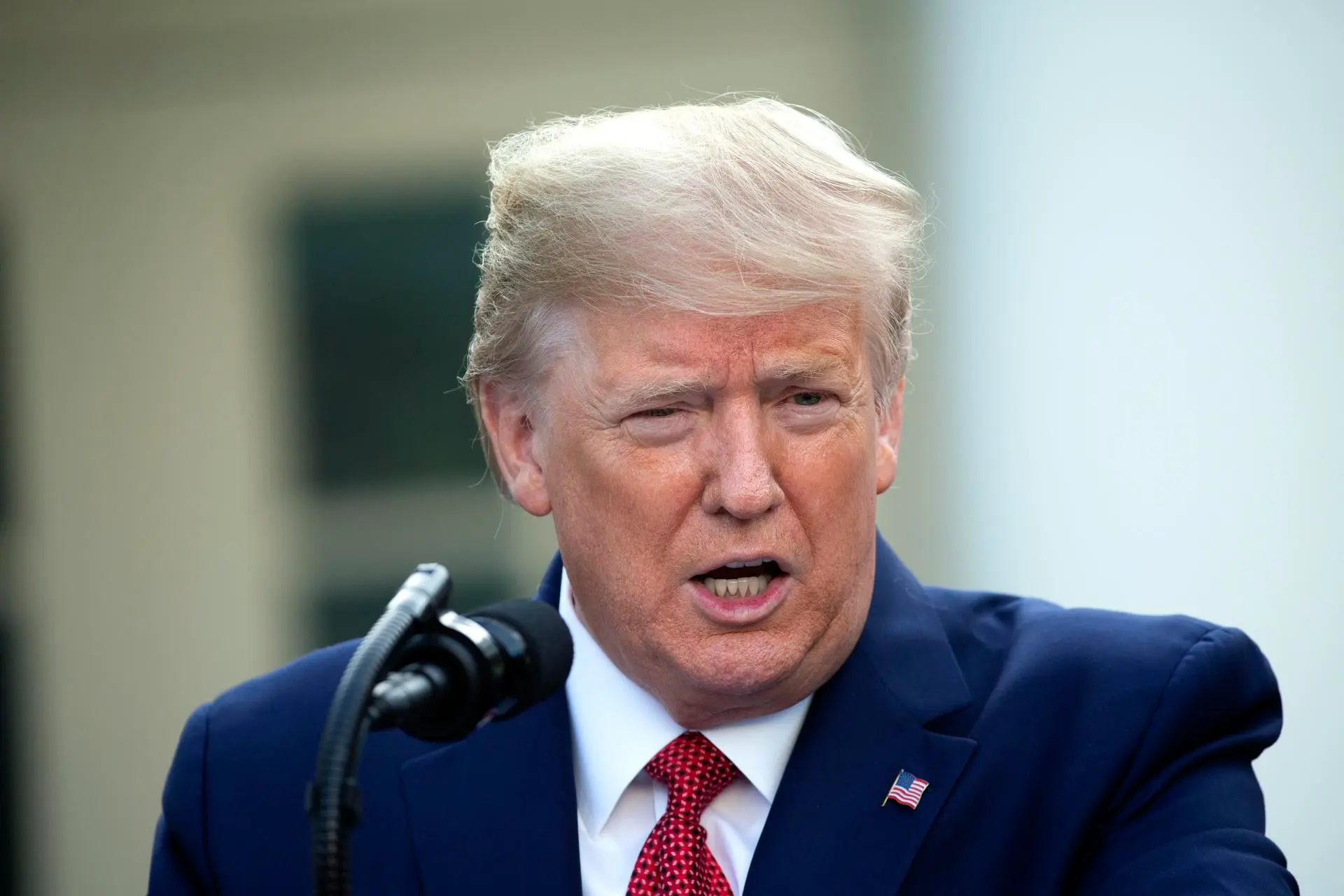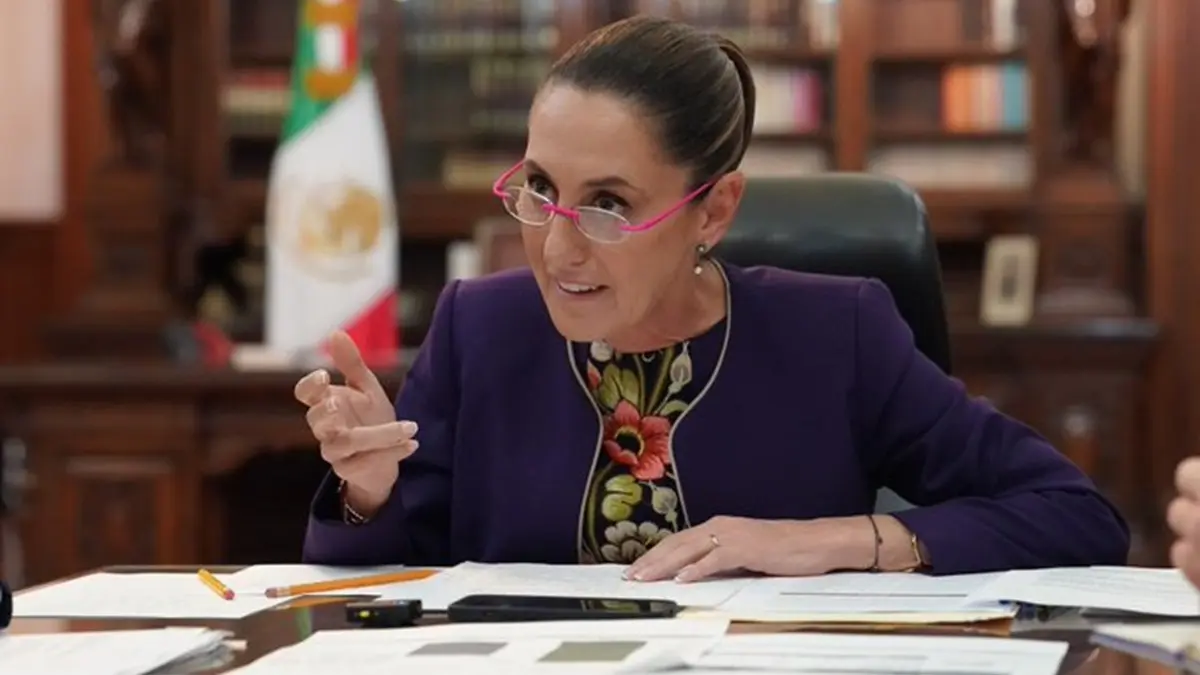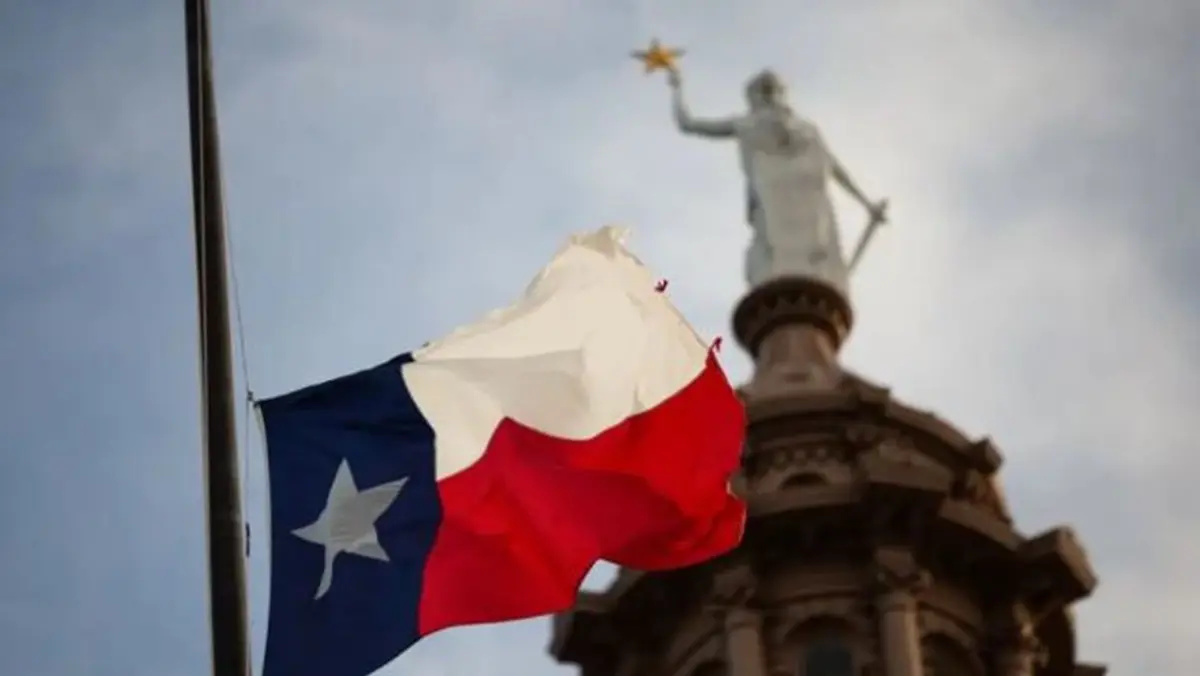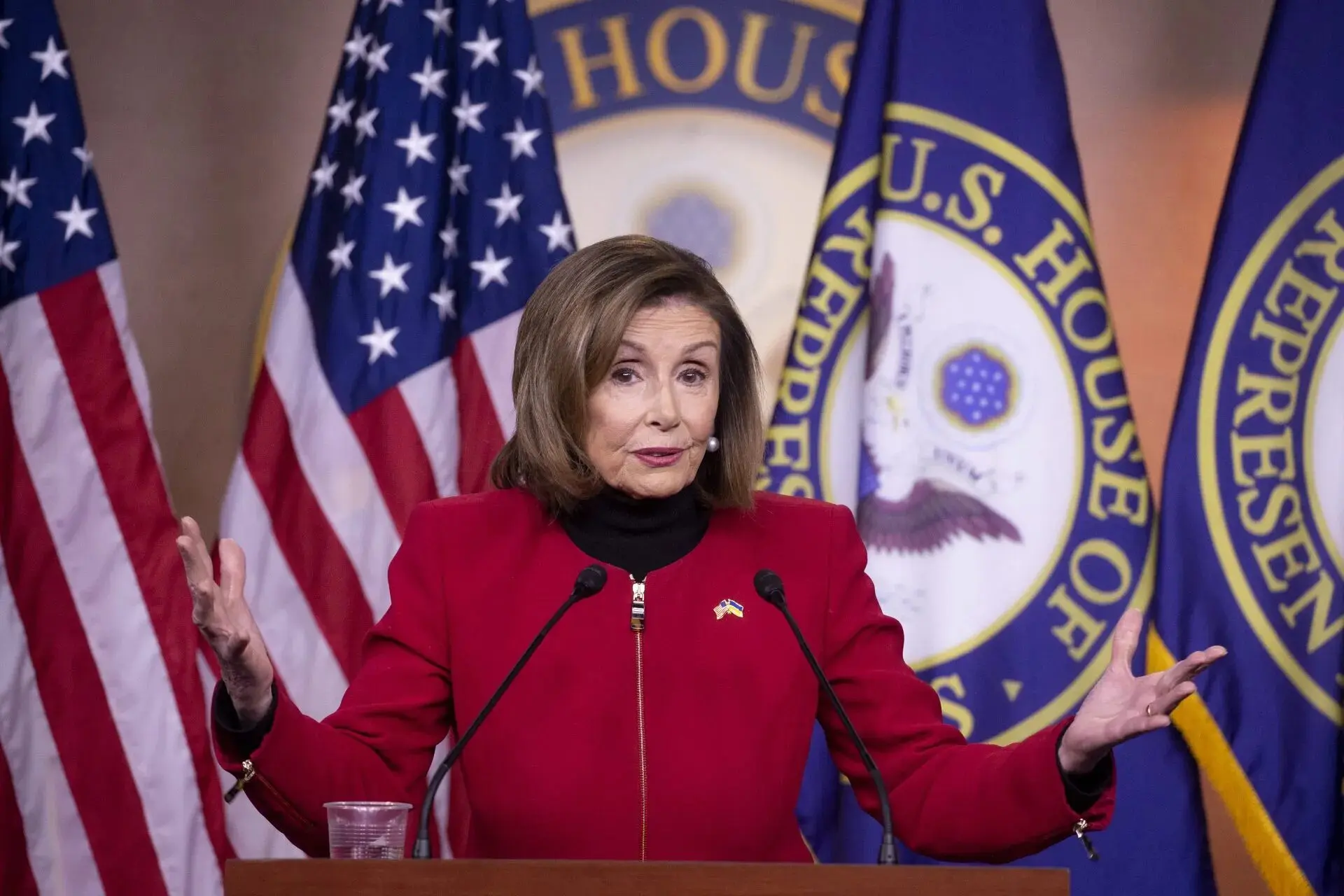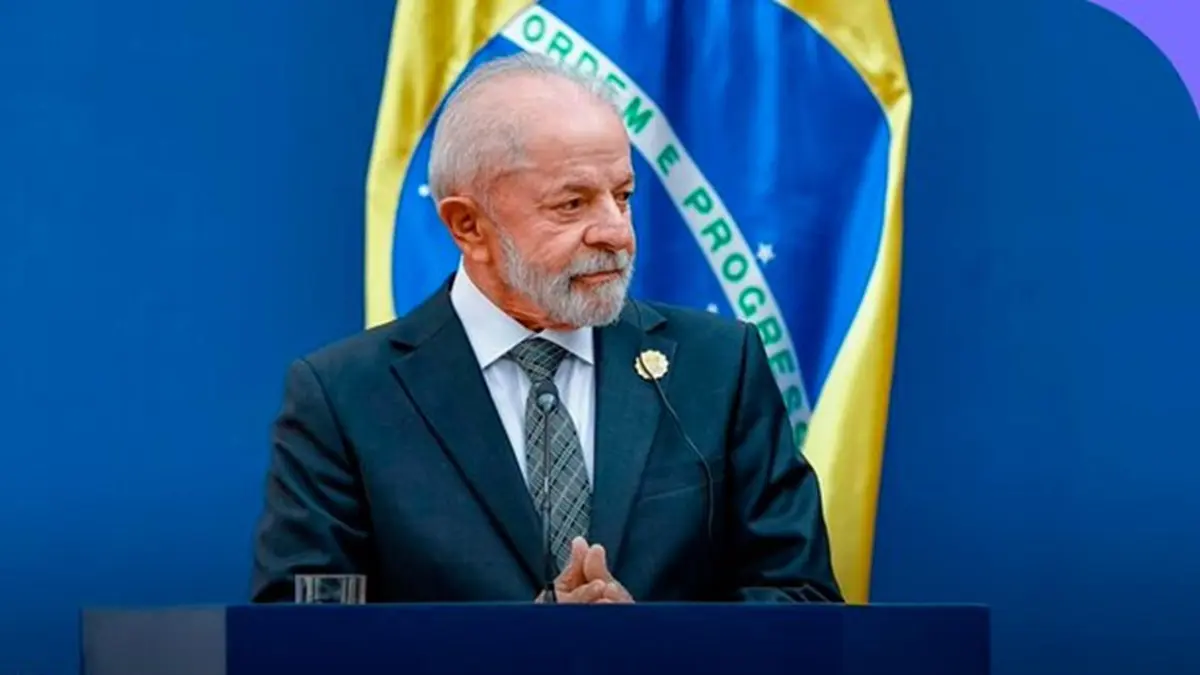Trump Adminstration’s 1st 100 Days: Major Policy Shifts, Legal Battles and Controversies

U.S. President Donald Trump. X/ @brontyman
April 30, 2025 Hour: 8:35 am
Critics said some of Trump’s moves are too rapid and extreme, which could negatively impact the U.S. economy and society.
The first 100 days of U.S. President Donald Trump’s second term have seen major shifts and hasty execution of polices, prompting numerous legal battles and controversies among the U.S. public.
RELATED:
Trump Claims Ukraine “Will Be Crushed Very Soon”: Peace or Pressure on Kyiv?
While the administration has touted “endless wins,” critics said some of Trump’s moves are too rapid and extreme, which could negatively impact the U.S. economy and society. Some even expressed concerns about the weakening of the system and a constitutional crisis.
DAILY SURPRISES AND SHOCKS
In its first 100 days, the Trump administration has delivered daily surprises and shocks to both the United States and the world — signing a massive number of executive orders, significantly downsizing federal agencies and employees, forcefully deporting immigrants, wielding the tariff stick against the world, continuing to withdraw from international groups and break agreements, and even threatening territorial expansion.
“No president in modern times has moved more swiftly than Trump to remake so many parts of government, as well as some outside institutions,” The Washington Post reported.
In a speech at a Michigan rally on Tuesday, Trump described his first 100 days as the most successful of any administration in U.S. history. Despite his confidence, many experts expressed concerns about the implications of his policies.
“Americans worry about immigrants crossing the border illegally, so that has been a good issue for (Trump) politically. But polls show that people don’t like his approach and feel he has been deporting people without any due process,” Brookings Institution Senior Fellow Darrell West said.
Trump has slapped many trading partners with tariffs, to the chagrin of many economists who believe the increased duties will spark an economic slowdown.
“The tariff show is creating enormous uncertainty among CEOs — they are worried not only about their own supply chains and customers, but also impacts elsewhere in the economy,” said Gary Clyde Hufbauer, a non-resident senior fellow at the Peterson Institute for International Economics.
“So, they delay investment decisions. Meanwhile, consumer confidence has fallen off a cliff. I expect consumers to postpone big-ticket purchases,” Hufbauer said, adding that the combination implies a recession in the second half of this year.
The White House has said it’s necessary to slash government spending, as there is massive “fraud and waste,” tasking billionaire entrepreneur Elon Musk to head the Department of Government Efficiency (DOGE). But opponents and some experts said Trump’s cuts won’t subtract much from the debt, and government workers are being unfairly punished in a bid to politicize government agencies.
“Efficiency is a pretext. The main goal of DOGE seems to be to shut down or incapacitate agencies Trump and his supporters object to, like USAID and the Department of Education,” said Christopher Galdieri, a political science professor at Saint Anselm College.
OVER 200 LAWSUITS
The president’s rapid policy shifts have been accompanied by an overwhelming surge in litigation, with over 200 lawsuits filed in courts nationwide. These legal challenges target more than 20 executive orders and numerous other executive actions. Plaintiffs include a coalition of states, small business owners, federal officials who were laid off, immigrant rights organizations, international students whose visas were revoked, and Harvard University.
Observers noted that since returning to the White House, Trump has been attempting to systematically explore the boundaries of presidential power, particularly by relying on executive authority to push policies. These policies include eliminating “birthright citizenship,” forcibly deporting immigrants, freezing federal spending, cutting funding for education and research, and more.
“The legal clashes over President Trump’s blizzard of executive actions are intensifying, with new lawsuits and fresh rulings emerging day and night,” according to The New York Times, which noted that as of April 28, at least 123 of those rulings have at least temporarily paused some of the administration’s initiatives.
Critics accused the Trump administration of flouting the authority of the courts, as Trump publicly criticized federal judges who ruled against his administration’s policies, and even called for impeachment.
“The administration’s position since it came into office is that whenever it is ruled against, this will be reversed by the Supreme Court anyway, so it need not follow what the lower court said,” said Clay Ramsay, a researcher at the Center for International and Security Studies at the University of Maryland.
Meanwhile, the Trump administration’s actions have not faced effective checks from Congress. The Wood couple, who drove over three hours from Bradford County, Pennsylvania, to join a recent protest in Washington D.C., said that they were deeply disappointed with the Republican-controlled Congress for remaining silent on policies like immigrant deportations, tariff hikes and government layoffs, all of which have faced widespread public opposition.
“They’re not doing their job. They’re not standing up to be a balance against the other two branches of government, to give voice to our wishes, and they’re doing the opposite,” Wood said.
NATIONWIDE PROTESTS
Since Trump took office three months ago, protests have erupted frequently across the United States. On April 5, over 1,000 protests were held nationwide, covering all 50 states. In the nation’s capital, protests have become a regular occurrence, driven by policies such as large-scale federal layoffs.
“Stop illegal deportations!” “Due process now!” “Workers should have power, not billionaires!” “The constitutional crisis is here!”… An April 19 protest in front of the White House featured a variety of eye-catching handmade signs.
Amid public dissatisfaction, support for Trump’s administration continues to decline. Only 39 percent of respondents in a recent ABC News/Washington Post/Ipsos poll said they approve of how Trump is handling his job as president, marking the lowest 100-day job approval rating of any U.S. president in the past 80 years.
Three months into Trump’s presidency, his administration is only making the rich richer, said Frank, who works for a nonprofit organization. “All their policies are to make sure that the rich people who donated to his campaign get even richer. So ending taxes for the rich, ensuring that companies are stronger and more powerful, it’s a billionaires’ agenda, not the people’s agenda,” he said.
Analysts point out that the Trump administration’s “America First” policy is disrupting the global economy, undermining global order and increasing uncertainty.
In the latest World Economic Outlook report, the IMF downgraded the global economic growth forecast for 2025 to 2.8 percent, 0.5 percentage points lower than the projection made in January. Noting that this on its own is a “major negative shock,” the IMF said in the report that the “unpredictability” with which these measures have been unfolding also has a negative impact on economic activity and the outlook.
Goodman Chakanyuka, executive director of credit risk at the Trade and Development Bank, an African regional development finance institution, said that he is concerned about the future.
“At the moment, there’s a lot of chaos… it’s difficult to plan,” Chakanyuka said. “You have to wait (for) event after event. So it’s a crisis after crisis… it will take maybe another few months before we can see stability,” he said, adding that this is not conducive to economic growth.
teleSUR/ JF
Source: Xinhua


